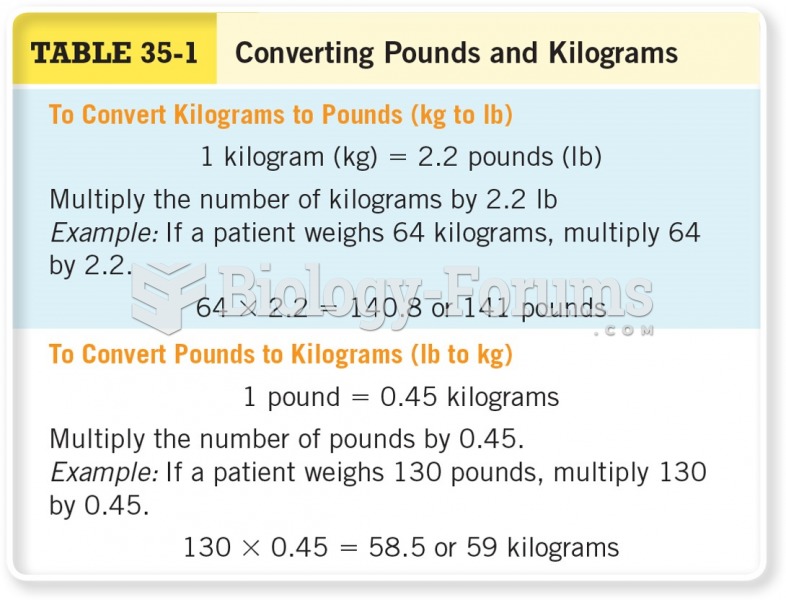|
|
|
On average, someone in the United States has a stroke about every 40 seconds. This is about 795,000 people per year.
The longest a person has survived after a heart transplant is 24 years.
Hippocrates noted that blood separates into four differently colored liquids when removed from the body and examined: a pure red liquid mixed with white liquid material with a yellow-colored froth at the top and a black substance that settles underneath; he named these the four humors (for blood, phlegm, yellow bile, and black bile).
Carbamazepine can interfere with the results of home pregnancy tests. If you are taking carbamazepine, do not try to test for pregnancy at home.
Human stomach acid is strong enough to dissolve small pieces of metal such as razor blades or staples.







